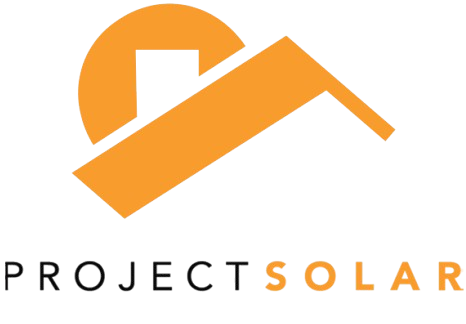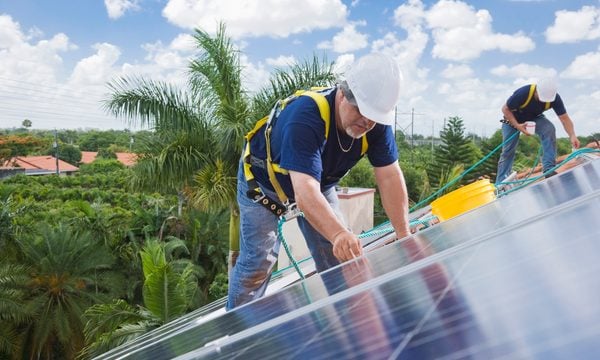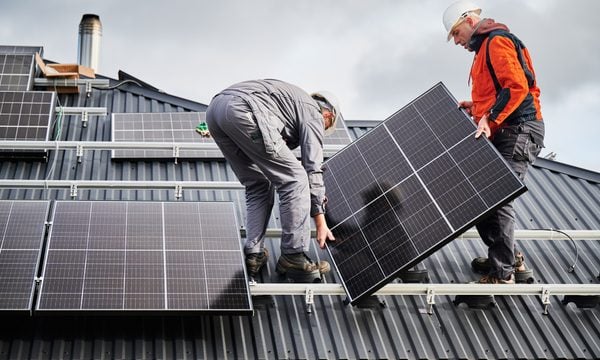Solar Panels in Colorado: Costs and Incentives in 2024
In Colorado, eco-friendly policies make solar panels a cost-effective purchase.

Some or all of the mortgage lenders featured on our site are advertising partners of NerdWallet, but this does not influence our evaluations, lender star ratings or the order in which lenders are listed on the page. Our opinions are our own. Here is a list of our partners.
Installing residential solar panels in sunny Colorado tends to be less expensive than in other states, due to lower average energy consumption and smaller average solar installations. Eco-friendly policies in this state also make solar a good way to save on electricity bills long-term.
The typical cost for an average-sized solar panel system in Colorado is $28,933 before incentives, and as little as $20,253 after the federal solar tax credit. This total is based on the state's median dollar-per-watt cost of installing a solar system and average residential system size, which was a low 9.3 kWs in the second half of 2023.
| Colorado | U.S. | |
|---|---|---|
| Typical cost of home solar system before federal solar tax credit | $28,933. | $34,122. |
| Typical cost of home solar system after federal solar tax credit | $20,253. | $23,885. |
| Median cost per watt | $3.10. | $2.96. |
| Average system size | 9.3kWs. | 11.6kWs. |
| Source: EnergySage, a solar and home energy product comparison marketplace founded in 2012. Data is from the second half of 2023. | ||
The median cost per watt of installed capacity, $3.10, is one of the more expensive options in the U.S. But the average system size in Colorado is on the lower end at 9.3 kW. This may be influenced by Colorado net metering rules that specifically allow net metering for systems under 10 kW. Average monthly consumption of electricity is also relatively low in Colorado, with the average household consuming 572 kWh of energy per month, according to EnergySage .
» MORE: Best solar companies
Interconnection upgrade costs
Some Colorado customers have found that their local power grid won’t support interconnecting solar panels to the utility grid without costly upgrades. For example, Xcel Energy, Colorado’s largest utility company, told a homeowner he’d need to pay $7,000 for a new transformer to get his solar panels connected to the grid because his neighborhood’s system couldn’t support another solar installation, The Colorado Sun reported.
“Interconnection is really important,” says Mac Scott, communications director for Colorado Solar & Storage Association (COSSA). “Homeowners have run into being responsible for upgrades required to make renewable energy possible. Somebody could get to the end of this investment and find out that there is an unexpected cost.”
The good news is that Senate Bill 218 , which was recently signed into law, provides funding to help qualifying large retail utilities — including Xcel Energy — make interconnection upgrades. It also limits customer charges for these upgrades to $300 or less for systems that are 25 kWs or smaller.
Net metering in Colorado
Colorado’s net metering agreement offers one-to-one credit when you sell back solar energy to the grid for residential systems up to 10kWs. Net metering is a billing convention that gives you credit for excess power your system produces during the day, which can be applied to electricity costs during dark or cloudy times of day when your system is using more power than it's producing. One-to-one net metering means you get 1 kW of credit toward your electric bill for every 1 kW your solar panels generate. This policy, designed to encourage people to go solar, makes it easy for residents with solar to keep electricity bills as low as possible. Not all states offer net metering, much less one-to-one net metering.
In Colorado, if you produce more electricity than you use, you could end up with a negative net usage balance for electricity and credits on your account. These credits roll over indefinitely until you terminate service with your utility, at which point any remaining credits are lost.
As more solar panels are installed in Colorado, net metering agreements may change.
Tax incentives and rebates in Colorado
Colorado Solar For All
A $156 million grant from the Environmental Protection Agency called Colorado Solar For All allows income-qualified candidates to apply for and receive access to solar power. The structure of the plan and application process is still in development at the time of publishing.
Local rebates and incentives
Colorado also has a variety of locally administered rebates and incentives, some of which residents can apply for through Energy Smart Colorado. The available incentives vary based on location. In the Roaring Fork Valley, for instance, residents can get rebates for 25% of a project's cost, or up to $2,500, for both residential solar panel systems and storage systems.
However, many utilities don’t participate in Energy Smart Colorado. To cover your bases, it’s worth asking your utility provider if it offers incentives or rebates. You can also search the Database of State Incentives for Renewables & Efficiency (DSIRE) , a project maintained by the North Carolina State University, to find out about benefits.
Energy storage in Colorado
Solar batteries, which allow you to store the electricity your home generates, add substantial cost to a solar panel installation. Since Colorado has one-to-one net metering, batteries might not save you much on your electric bill. But they can provide backup power in the event of an outage, which can be especially useful in remote areas with harder-to-access power utility lines.
Colorado’s average installed battery cost ranges from $16,575 to $22,425 before the federal tax credit kicks in, according to 2024 EnergySage data. This can add many years to the payback period for your solar panel system.
The state of Colorado offers a 10% tax credit toward the purchase price of energy storage systems like battery backups. It is applied the point-of-sale, so your battery storage installer will typically apply the discount when you pay.
Read more about solar panel costs, incentives and policies in these states:
Can I get financing for a solar panel system?
In addition to tax incentives and rebates, there are options available. Many solar installers offer financing, but you may also be able to finance your solar investment through a home equity loan or home equity line of credit (HELOC). These options may have lower interest rates than financing with an installer, future opportunities for refinancing and possible tax benefits.
Home equity loans and HELOCs are ways to borrow against the value of your home, converting equity into cash. With a home equity loan, you receive a lump-sum payment and then pay it back at a fixed interest rate over an agreed period of time, typically from five to 30 years. HELOCs are more akin to a credit card, something you use as needed. You’ll usually have 10 years to draw from the line of credit, during which time you only have to pay interest, and after that you pay both the principal and interest. HELOC interest rates typically are variable, meaning your monthly payment could rise or fall over time. And with each of these options, you're using your home as collateral.
Advertisement
Min. credit score 600 | Min. credit score 600 |
Min. down payment N/A | Min. down payment N/A |
Another option is a solar loan. Many banks, credit unions and online lenders offer these to fund solar panels and installation, with amounts typically from $1,000 to $100,000, and annual percentage rates ranging from 6% to 36%. They function like a personal loan: you receive a lump sum and repay it in equal monthly installments over a set period, typically two to seven years. And unlike with home equity financing, there is no collateral required for a solar loan. This means your home or solar panels aren’t at risk if you miss payments, but you may have to pay late fees.
So, yes, you likely can get financing. If you go this route, compare interest rates, terms and fees with any financing package that a solar provider may offer you to ensure you get the best deal.
Frequently Asked Questions
What kinds of utility companies exist in Colorado for interconnection with solar panels?
Colorado’s utilities are provided by two investor-owned electric utilities, 29 municipal utilities, and 22 rural electric cooperatives. Where you live determines which utility serves you.
What standards and targets has Colorado set for renewable energy?
Colorado adopted the Colorado Renewable Energy Requirement Initiative in 2004. Depending on how large each utility is, it requires between 10%–30% of its energy to be renewable, with a target for large utilities to reach 100% renewable energy by 2050.
Article sources
NerdWallet writers are subject matter authorities who use primary,
trustworthy sources to inform their work, including peer-reviewed
studies, government websites, academic research and interviews with
industry experts. All content is fact-checked for accuracy, timeliness
and relevance. You can learn more about NerdWallet's high
standards for journalism by reading our
editorial guidelines.
- 1. EnergySage. Solar & Storage Marketplace Report 2023. Accessed Jun 13, 2024.
- 2. Colorado General Assembly. Modernize Energy Distribution Systems. Accessed Jun 13, 2024.
More like this
Related articles
AD
Save On Solar Without the Middleman
Free Instant Quote
on Project Solar's website

AD

Save On Solar Without the Middleman
- $750 OFF install with NerdWallet;
- SolarCare™: top-tier warranty & 25-year production guarantee;
- No sales commissions mean premium equipment & tech at up to half the price.

Free Instant Quote
on Project Solar's website











